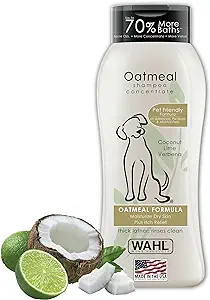Living with pets can be a joyous experience, but it can also present unique challenges for those with allergies or sensitivities. Whether it’s sneezing, itching, or watery eyes, managing these symptoms while maintaining a loving home for your furry friends is crucial.
We delve into strategies and expert advice to help you navigate the complexities of pet allergies and sensitivities, ensuring a harmonious environment for you and your pets.
Understanding Pet Allergies
Pet allergies are commonly caused by proteins in an animal’s skin cells, urine, and saliva. When these proteins become airborne or come into contact with skin, they can start allergic reactions in sensitive individuals. Common symptoms include:
- Sneezing and nasal congestion
- Itchy, watery eyes
- Skin rashes or hives
- Shortness of breath or wheezing
Understanding the root cause of these reactions is the first step in managing them effectively. It’s essential to consult with an allergist to confirm the specific allergens and devise a customized management plan.
Creating an Allergy-Friendly Home
Transforming your living space into an allergy-safe zone doesn’t have to be daunting. Here are some practical steps to make your home more comfortable:
Regular Cleaning
Keeping a clean environment is crucial in reducing allergens. This includes:
- Frequent vacuuming with a HEPA filter vacuum
- Washing pet bedding and toys regularly
- Using air purifiers to remove airborne allergens
Designated Pet-Free Zones
Creating spaces where your pets are not allowed, particularly bedrooms, can significantly reduce exposure to allergens where you spend a lot of time.
Bathing and Grooming
Regularly bathing and grooming your pets can help reduce the amount of dander they shed. Use hypoallergenic shampoos and consult your veterinarian for specific recommendations tailored to your pet’s breed and skin type.

Diet and Nutrition
A well-balanced diet is best for your pet’s health and minimizing allergens. High-quality, nutritious pet food can improve skin and coat health and reduce dander. The American Kennel Club recommends foods rich in omega-3 and omega-6 fatty acids.
Specialized Diets
In some cases, pets may have food allergies that contribute to skin problems and increased dander. If you suspect this, consult your veterinarian to explore specialized diets that can alleviate these symptoms.
Medical Treatments
Sometimes, more than environmental changes and dietary adjustments are needed. Medical treatments can provide significant relief.
Allergy Medications
Over-the-counter antihistamines can help control mild symptoms, while prescription medications may be necessary for more severe reactions. Always check with a doctor before starting new medications.
https://www.humanesociety.org/resources/how-live-allergies-and-pets
Immunotherapy
Allergy shots or sublingual drops can help desensitize the immune system to pet allergens over time. This method requires a long-term commitment but can offer substantial relief for those with persistent symptoms.
Conclusion
Managing pet allergies and sensitivities may require a multifaceted approach. Still, with the proper practices and expert guidance, you can make a comfortable and loving home for you and your furry companions.




